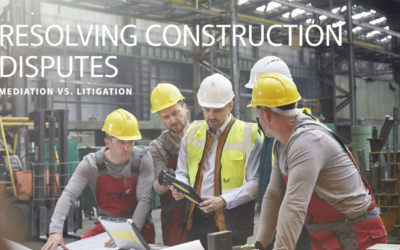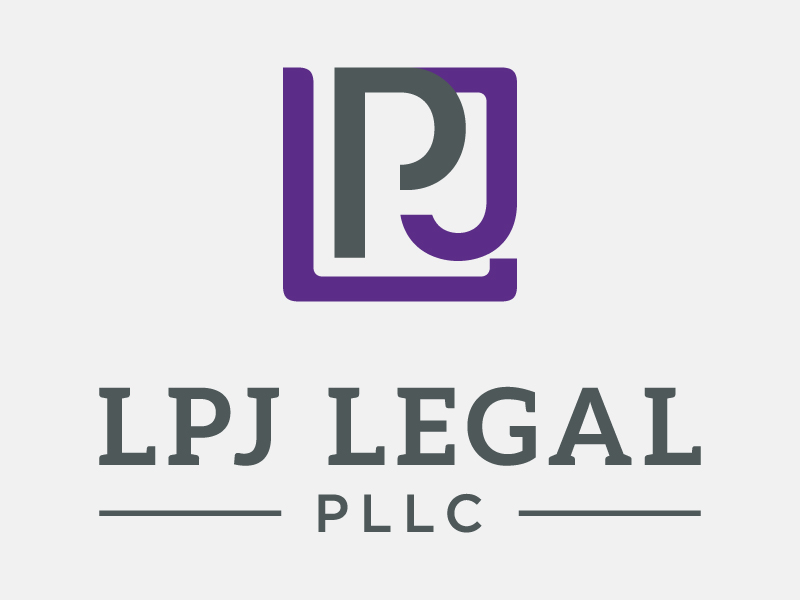When investing in commercial real estate, ensuring a clean title is one of the most critical steps in the process. Title issues can lead to costly disputes, legal entanglements, and even loss of property rights if handled improperly. Whether you’re purchasing a shopping center, an office building, or an industrial facility, understanding common title problems—such as liens, encumbrances, and hidden risks—is essential for safeguarding your investment. Here’s a list of common title issues and to remain aware of before making your next commercial purchase.
New to LPJ Legal? We’re a dedicated group of experienced and highly credible legal professionals, proudly representing clients both locally and internationally with domestic offices in D.C., Maryland, Virginia, and Georgia. At LPJ Legal, we believe that a law firm should be more than a legal resource; it should be a trusted partner. Our team is committed to safeguarding our clients’ businesses, properties, and futures, providing powerful legal insights to help ensure their success. To become a commercial real estate client, visit the LPJ Legal website, or call us directly at 202-643-6211.
Common Title Issues in Commercial Real Estate
1. Liens: Financial Claims on Property
A lien is a legal claim placed on a property to secure unpaid debts owed by the owner. Liens can arise from various sources and parties, including:
- Mechanic’s Liens: Filed by contractors or suppliers who have not been paid for work performed on the property.
- Tax Liens: Unpaid property taxes can result in a government-imposed lien.
- Judgment Liens: If the property owner loses a lawsuit and does not satisfy the judgment, a lien may be placed against the property to ensure that the creditor can collect the debt if the property is sold.
Liens must be cleared before a commercial property can be sold or refinanced. A title search will reveal existing liens, allowing buyers to address them before closing the deal.
2. Encumbrances: Restrictions on Property Use
Encumbrances are limitations on how a property can be used, potentially affecting its value or intended purpose. Common encumbrances include:
- Easements: Easements allow a third-party rights to use a portion of the property (e.g., utility companies with access to underground lines).
- Restrictive Covenants: These private agreements limit how the property can be used and include zoning restrictions or historical preservation rules.
- Leases: Existing leases may impact the ability to use or develop the property as a buyer intended.
- Zoning Restrictions: Local government regulations dictate permissible land use and development, including commercial use, residential use, and limitations on the size and height of structures.
Understanding encumbrances before purchasing a property ensures that they align with your investment goals and development plans.
3. Hidden Risks: Fraud, Forgery, and Undisclosed Claims
Even with a thorough title search, some risks remain hidden. These may include:
- Fraud and Forgery: Past fraudulent transfers, forged signatures, or identity theft can cloud the title, making it unclear who actually owns the property.
- Undisclosed Heirs: If a previous owner passed away and undisclosed heirs come forward with a claim, the property’s ownership could be challenged.
- Erroneous Public Records: Clerical errors in property records can create complications in ownership rights, even an error as simple as a misspelled name.
Boundary Disputes: If the lines surrounding a property are unclear, this can quickly lead to conflicts with neighboring property owners.
Catching hidden issues often requires more than just a title search; it requires investigating the property’s full historical record and any irregularities that may raise red flags. Consult the attorneys at LPJ Legal for guidance as you move through this process.
3 Tips to Protect Yourself from Title Issues
1. Conduct a Thorough Title Search
Before finalizing a commercial real estate transaction, a comprehensive title search should be conducted to uncover any liens, encumbrances, or defects. Working with an experienced real estate attorney can help ensure the search is thorough and accurate.
2. Obtain Title Insurance
Title insurance provides financial protection against undiscovered title defects, such as fraud, errors, or hidden claims. It is a crucial safeguard for buyers and lenders in commercial real estate transactions.
3. Work with the Commercial Real Estate Attorneys at LPJ Legal
Navigating title issues in commercial real estate requires legal expertise. A real estate attorney can review title reports, negotiate lien resolutions, and ensure a smooth closing process, reducing risks associated with hidden claims or encumbrances.
Keep in mind, a title attorney through your settlement company does not work for you. It is a neutral party. Have your interest protected with a Real Estate Attorney.
Understanding the risks associated with liens, encumbrances, and hidden claims—and taking proactive steps to address them—can help protect your investment.
For expert legal guidance on commercial real estate transactions, contact LPJ Legal today.



